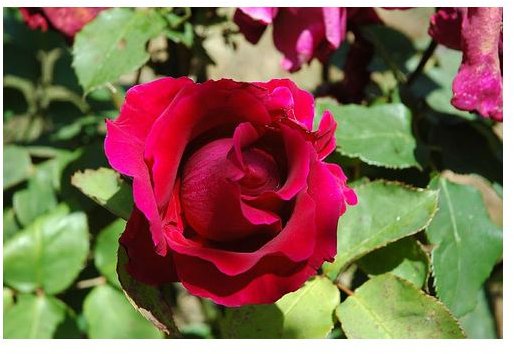Radiation Cancer Therapy and Aromatherapy
Effects of Radiation
Radiation is used to treat many types of cancer. X-rays, gamma rays and charged particles are used to destroy cancer cells and to shrink tumors. At the same time they can damage healthy cells, particularly those around the site of the cancer. One of the most common side effects of radiation cancer therapy is skin irritation, which can become progressively worse with each treatment. Fatigue, nausea and general malaise are other side effects that many cancer patients experience to some degree. These effects usually go away within several weeks to months after treatment. There are other possible permanent side effects that may occur depending on where the radiation occurs.
Aromatherapy can be used to ease the discomfort, to help alleviate lethargy and depression, and to help the body heal. It is important to talk to your doctor about using this form of alternative medicine when receiving radiation treatments, particularly the use of essential oils to treat skin irritations. With proper use however, this natural, complementary medicine can be a great tool for dealing with a rather intense form of medical treatment.
Aromatherapy for Skin Irritation
One way that aromatherapy can benefit cancer patients going through radiation treatments is through skin care. There are many essential
oils that are beneficial for their anti-microbial, anti-inflammatory, normalizing, moisturizing or soothing properties, including lavender, neroli, rose and sandalwood.
Before using aromatherapy for radiation burns it is important to discuss this treatment choice with your doctor. This form of complementary medicine can speed healing and sooth the skin, but it is important to use essential oils safely. First, never apply directly to the skin. Always dilute in a carrier substance such as distilled water, or a natural oil such as jojoba, olive or sweet almond. Second, use only a small amount, such as 2 to 3 drops for every ounce of carrier substance. Essential oils are highly concentrated plant extractions (for example, one ounce of rose oil is extracted from an acre of roses). Third, talk to your doctor about any possible interactions and about the appropriateness of using aromatherapy for your individual needs.
For a simple, natural treatment for burns make a soothing aromatherapy mist — use 2 drops each of neroli and lavender essential oil in 2 ounces of distilled water, spring water or aloe vera juice. Put in a spray bottle and mist over burns. This is only an example of how aromatherapy can be used for easing the discomfort of radiation therapy — only use after talking with your health care provider.
Avoid the photo-toxic essential oils or irritating, sensitizing oils. They can increase the skin’s sensitivity, which is exactly what you do not want when exposed to radiation therapy. The citrus oils, including bergamot and lemon verbena are photo-toxic. Cinnamon, clove and caraway are examples of oils that can be irritating to the skin.
Read on to learn more about the use of aromatherapy and radiotherapy.
Aromatherapy for Mental Well-Being
Another way that aromatherapy can benefit cancer patients is by improving mental well-being. According to the National Cancer Institute there have been several studies on the benefits of essential oils for preventing and relieving anxiety. Some show minor benefits, while much of the research has not shown any benefit at all. Choosing to use essential oils for depression, insomnia, fatigue and anxiety due to the disease or the radiation therapy is an individual choice that should be made between you and your doctor.
Beneficial aromatherapy oils include:
- Rose
- Sandalwood
- Geranium
- Ylang Ylang
- Neroli
- Jasmine
Peppermint, rosemary and spearmint act as natural mental stimulants. They are very useful for combating fatigue and for revitalizing. To
use these essential oils of course first talk to your doctor. They can be used in an essential oil diffuser, for five to fifteen minutes at a time. You can simply inhale the scents, placing 1 or 2 drops on a clean cloth. Bathing in essential oils is also very soothing for the mind and body — add 6 drops of your choice of oil to 1 cup of water or milk, 1 tablespoon of a carrier oil or 1 cup of Epsom salts. Soak for twenty minutes. Only use an aromatherapy bath after discussing this option with your health care provider.
Safe Use
Radiation cancer therapy and aromatherapy in many ways seem well-suited — radiation damages cells, wears down the body and burns the skin; essential oils encourage healing, lift spirits and can sooth the skin. While beneficial in many cases it is so important to discuss the use of essential oils with your doctor and to seek professional guidance. Aromatherapy has become a more popular form of complementary medicine, especially for cancer treatment. Today there are an increasing number of nurses who have some training with essential oils and aromatherapy is offered at hospitals and within cancer support groups.
References
Sheppard-Hanger, Sylla. “Use of Essential Oils and Natural Extracts to Help Counter Side Effects of Radiation During Cancer Treatment.” (Atlantic Institute of Aromatherapy) https://atlanticinstitute.com/piatalk.html
National Cancer Institute https://www.cancer.gov/cancertopics/factsheet/Therapy/radiation
Cutler, Nicole, L. Ac. “What You Need to Know About Essential Oils and Cancer Treatment.” (Institute for Integrative Healthcare Studies) https://www.integrative-healthcare.org/mt/archives/2009/09/what_you_need_t.html
National Cancer Institute https://www.cancer.gov/cancertopics/pdq/cam/aromatherapy/healthprofessional/page5
AFH Library https://www.alkalizeforhealth.net/Laromatherapy.htm
photo by Cindy Andrie
photo by Isabel Eyre
